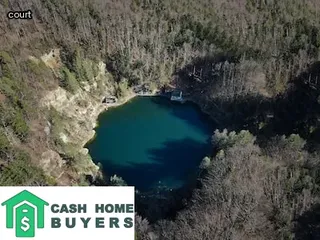Understanding the probate process in Hawaii can be a daunting task for many people. It is important to understand the basics of this process before jumping into a real estate transaction. In Hawaii, probate is the legal process that brings forth the transfer of assets from an estate to its rightful heirs.
This can include property such as real estate, stocks and bonds, and other forms of personal property. The first step in this process is locating all assets that are part of the deceased’s estate. This includes locating any documents related to these assets such as deeds or titles, bank accounts, and any other financial records.
Once these records have been located, it must then be determined who will assume ownership of each asset. This can involve multiple parties depending on the size and number of heirs involved in the estate. In order to properly complete this process, it is essential that all parties involved understand their rights and obligations under Hawaiian law when it comes to probate proceedings.
Additionally, it is important to remember that probate proceedings can take several months or even years if there are complex issues involved with transferring assets between multiple parties. Understanding how probate works in Hawaii can help ensure that everyone involved has a smooth transition when dealing with real estate transactions involving multiple individuals.

When it comes to selling a home in probate, there are several advantages that homeowners should take into consideration. For starters, the probate process can help to expedite the sale of a home, allowing for a faster and smoother transaction than if the house was sold through traditional methods.
Additionally, probate listings often come with less competition, which means fewer potential buyers vying for the same property. The Hawaii probate listing process also helps to streamline paperwork and other requirements associated with selling real estate, as all necessary documents are filed directly with courts or state agencies.
Furthermore, since most probate transactions involve court-appointed executors and trustees, these individuals can provide guidance as well as legal advice throughout the entire process. Lastly, when selling real estate in Hawaii through probate listings, sellers may be able to avoid certain taxes or fees that would otherwise be due during a standard real estate transaction.
The probate listing process in Hawaii can be complicated and time consuming. The first step is to find a qualified attorney to guide you through the process, as they will be able to answer any questions you may have and ensure that all of the paperwork is properly filed.
Next, you'll need to submit a petition for probate with the court, along with a copy of the deceased's will or other relevant documents. Before any real estate in Hawaii can be sold, it must go through an administration period where creditors are paid off and debts settled.
After this is complete, a Notice of Probate Sale will be published in newspapers and other publications around the state. When buyers are interested in viewing the property, they must submit an offer and prove that they have enough funds available to cover closing costs.
Finally, when all parties have agreed on a sale price, closing documents must be signed and submitted to complete the sale.

When buying a probate property in Hawaii, it is important to understand the repairs and maintenance that may be needed. It is not always obvious what repairs are necessary or how much time and money will need to be invested into the property.
A good starting point for understanding the repairs and maintenance required is to have an inspector visit the property and provide an assessment of any work that needs to be done. Taking on a renovation project for a probate property can be expensive, so it’s important to budget accordingly and plan out all of the necessary steps in advance.
It’s also beneficial to research local contractors in Hawaii who specialize in probate properties, as they can provide valuable advice on how best to allocate resources when considering repair and maintenance expenses. Additionally, applicants should consult with local experts in order to determine if there are any special considerations that need to be taken into account when dealing with a probate-related repair or maintenance project.
Although tackling repairs and maintenance for a probate property in Hawaii can seem daunting at first, taking some time to understand the process can help ensure that buyers make well informed decisions about the future of their investment.
When it comes to understanding the probate listing process for real estate in Hawaii, there are some steps that can be taken to help avoid probate. Making sure all assets are held jointly is one of the most important ways to prevent them from going through probate.
By having joint ownership, assets will pass directly to the surviving owners rather than going through a lengthy court process. Additionally, creating an updated estate plan can also prove beneficial in avoiding probate.
A comprehensive plan should include legal documents such as a last will and testament or revocable living trust that state how assets will be distributed when the owner passes away. Lastly, gifting assets or transferring ownership is another way to avoid probate in Hawaii.
This involves transferring property or money into someone else's name before death so it does not have to go through the court system after passing away. With these strategies in mind, it is possible for anyone looking to understand the probate listing process for real estate in Hawaii to take proactive steps towards avoiding it altogether.

In Hawaii, Executors of an estate are entitled to reasonable compensation for the services they provide. To understand how much an executor may be compensated, it is important to identify what tasks are involved in the probate listing process for real estate.
The amount of compensation is determined by the court and is based on the complexity of the estate and its assets. Generally, Executors receive a percentage of the total value of real estate owned by the deceased.
This amount may include payment for any fees such as filing fees, appraisal fees, and other costs incurred during probate proceedings. Additionally, Executors may also receive reimbursement for their time spent managing the estate’s assets as well as any out-of-pocket expenses.
In order to ensure fair compensation for Executors in Hawaii, it is important that all applicable laws and regulations are followed throughout the probate listing process.
In Hawaii, the probate listing process for real estate is generally lengthy and can take anywhere from six months to two years. The timeline for settling an estate in Hawaii starts with a court determining if the deceased person had a valid will.
If there is no will, the court will appoint an executor to establish an estate. Then, the executor must evaluate all assets and liabilities of the deceased and determine who should receive them.
Next, creditors must be paid off before any assets can be distributed among heirs. Finally, the remaining assets are distributed to named beneficiaries according to Hawaiian law.
Throughout this process, the executor may need to file certain documents with the court, including a petition for probate, inventory of assets and liabilities, and notice of distribution of funds.

In Hawaii, a will needs to be validly executed and attested in order to be probated. According to the state’s laws, the will must be signed by the testator (the creator of the will) and two witnesses in order for it to be valid.
The witnesses must sign both at the same time as each other, but not necessarily in the presence of the testator. It is also important that all parties involved are competent and of sound mind when signing.
Furthermore, Hawaiian law states that a written amendment or revocation of a previous will can only be done if it is in writing and signed by either the testator or another person in their presence and at their direction. Lastly, if an estate plan has been created through a trust with no will, then it does not need to go through probate court.
The probate process in Oahu, Hawaii is a legally binding system used to transfer property rights and assets from the deceased to their heirs. To begin the probate process for a house in Oahu, it is important to understand the necessary steps involved.
First, ensure you have access to a copy of the deceased person's will or trust documents. These documents are typically held by an attorney or with the court that issued them.
Next, contact an estate-planning attorney familiar with probate laws in Hawaii and file a Petition for Probate with the court. Once approved, you can become an administrator of the estate and are responsible for gathering all assets and distributing them according to the terms outlined in the will or trust document.
You must also identify any creditors and pay outstanding debts before transferring ownership of real estate to beneficiaries. Finally, contact local real estate agents who specialize in probate listings and follow their guidance as you complete all necessary paperwork associated with selling a home in Hawaii's probate system.
Understanding how to begin the process is essential for successful completion of this complex procedure.

Understanding the probate listing process for real estate in Hawaii can be a daunting task. A probate listing is a property that has been declared as part of an estate or will, usually following the death of the owner.
The court system then oversees the sale of the property through a legal process known as probate. This process can involve transferring ownership to a beneficiary or selling off assets to settle debts and pay expenses.
It's important to understand that when a property is listed in probate, it can take much longer to complete the sale than with a traditional real estate transaction due to court proceedings and other delays. In order for potential buyers to be interested in such properties, they must ensure that all legal requirements are met and any potential risks are understood.
Once these documents are reviewed, potential buyers may submit an offer on a probate listing if they feel comfortable doing so. The final decision rests with the court, which must approve any bid before the property is sold.
The probate process in Hawaii is an essential part of the real estate system and it’s important to understand the details of this listing process before buying or selling property. The question of whether all estates have to go through the probate process in HI can be answered by looking at a few key factors.
Firstly, if an estate is being sold with a will then it must pass through probate court before any sale can be completed. Additionally, if no will is present then the state laws may dictate that probate must still take place in order to transfer ownership of the property.
In either case, it’s crucial to discuss any relevant details with a lawyer before attempting to buy or sell real estate in Hawaii so as to ensure compliance with state regulations.

The process of selling a house in probate in Hawaii can involve a variety of legal costs, depending on the circumstances. There may be court filing fees, transfer taxes, inheritance taxes, and other administrative costs.
Additionally, the estate will generally need to hire an attorney to handle the probate proceedings. The attorney’s fees are typically based on a percentage of the estate’s assets and may include both pre- and post-death legal services.
Furthermore, if there is no executor or administrator appointed by the court, then a private fiduciary may also need to be hired to manage the estate. In some cases, additional professional services such as appraisals or accounting may be necessary as well.
All of these costs can add up quickly and it is important for sellers to understand all associated expenses prior to finalizing the sale of the property in probate.
When selling a home in probate, there are certain laws and requirements that must be followed. This includes obtaining court approval for the sale of any real estate, filing paperwork with the court, and notifying all interested parties.
The executor of the estate is responsible for ensuring all legal requirements are met before proceeding with a sale. Typically this includes providing a detailed inventory of the property, an appraisal of its value, and paying court fees to transfer ownership of the real estate from the deceased to their beneficiaries.
In Hawaii, additional conditions may apply including obtaining special permission from a judge if there is no will or if heirs cannot agree on how to divide assets. It is important for potential buyers and executors alike to understand these laws and regulations in order to avoid costly mistakes or delays during what can already be a stressful time.

The tax implications of selling a home in probate in Hawaii can be complex, and it's important to understand all of your obligations as a seller. When property is sold through probate, the executor or administrator must pay any taxes that are owed on behalf of the estate.
This includes income taxes due on any profits made from the sale, as well as capital gains taxes. Additionally, if the property has been owned for longer than one year, then estate tax may also apply.
The executor or administrator must also provide tax returns and other financial documents to prove that all taxes have been paid before closing on the sale. It's important to note that these tax responsibilities fall on the executor or administrator and not on the buyer.
However, buyers should be aware of any potential liabilities they may incur by purchasing a home in probate so they can plan accordingly.
When searching for an experienced real estate agent to help with a probate sale in Hawaii, it is important to look for someone who understands the complexities of the process. An experienced real estate agent will be familiar with Hawaii's probate laws and have experience working with probate courts.
In addition, they should be able to provide guidance on how best to navigate the paperwork associated with a probate sale. They should also be knowledgeable about any applicable taxes or fees due on the property and be able to advise you about any potential pitfalls or issues that could arise during the sale.
It is also beneficial to ask if they offer any additional services such as title searches or appraisals that could make the process easier. When interviewing potential agents, it is important to ask questions about their experience and qualifications so you can determine if they are the right fit for your needs.

When selling a home in Hawaii during the probatem process, it is important to maximize return on investment. One of the key tips for ensuring this is compliance with all laws and regulations.
This includes researching local laws and ordinances to ensure everything is done properly and legally. Additionally, sellers should consider whether or not they need professional advice prior to a property sale.
Depending on the situation, professional advice may be necessary to help ensure a successful sale and maximum return. During the probatem process, who is responsible for paying off debts associated with the property will also need to be considered.
Lastly, some of the common challenges faced during the probatem process include understanding applicable taxes, insurance considerations, potential title issues, and understanding how inheritance laws may affect the transaction.
The probate process in Hawaii is a legal procedure whereby the assets of a deceased person, who did not leave behind a valid will, are distributed to their heirs. This process typically begins when an Executor or Administrator is appointed by the court to oversee the distribution of the estate.
The Executor or Administrator will identify and value all assets belonging to the decedent, including real estate, and then file a Probate Listing with the court. The Probate Listing must be published in a newspaper of general circulation before it can be finalized.
Once this step is completed, creditors may submit claims against the estate, and any outstanding debts must be paid off before any assets can be distributed to heirs. In addition, all heirs must agree on the terms of distribution before they can receive their inheritance.
Throughout this process, an experienced attorney can help ensure that everything runs smoothly and that all parties involved understand their rights and responsibilities under Hawaiian law.

To find probate records in Hawaii, there are a few different options. First, you can search online for public records using the Hawaii Probate eFiling System.
This system offers access to probate court documents and filings. You can also search the state's government websites for probate records.
Finally, you can contact the Clerk of Court in each county to inquire about accessing probate records. Each county will have its own set of rules and regulations governing how one can access probate records, so be sure to research your local area before proceeding with any searches.
Remember that some counties may require specific forms or fees before allowing access to probate records. It is important to understand these requirements before attempting to uncover valuable information from the probate listings process in Hawaii.
In Hawaii, the probate limit is an important factor to consider when understanding the probate listing process for real estate. The probate limit determines how much of an estate can be transferred without having to go through a court-supervised probate process.
In Hawaii, the probate limit is $100,000 or three years’ worth of income from the deceased individual’s estate, whichever is less. Anything over this amount must go through a court-supervised probate process in order to transfer ownership of the property.
This means that if you are looking to purchase real estate in Hawaii, it’s important to understand what the current probate limit is and how it applies to your transaction. Knowing this information will help you make an informed decision and ensure you are following all necessary legal requirements.
In Hawaii, the probate listing process for real estate can be a lengthy and complex process. The length of time required to complete the probate listing process depends on the complexity of the estate, any disputes that may arise, and how quickly all parties involved respond to requests from the court.
Generally speaking, it can take anywhere from six months up to two years or more to probate a will in Hawaii. However, there are certain circumstances which may expedite the process or extend its duration.
For example, if there is an uncontested will with no creditors involved, or if all beneficiaries agree on how to divide assets in the estate, then it is possible for the probate listing process to be completed in as little as six months. On the other hand, if there is significant litigation over estate assets or creditors need to be paid before distribution of assets can occur, then it could take considerably longer than two years for a will to be fully probated in Hawaii.